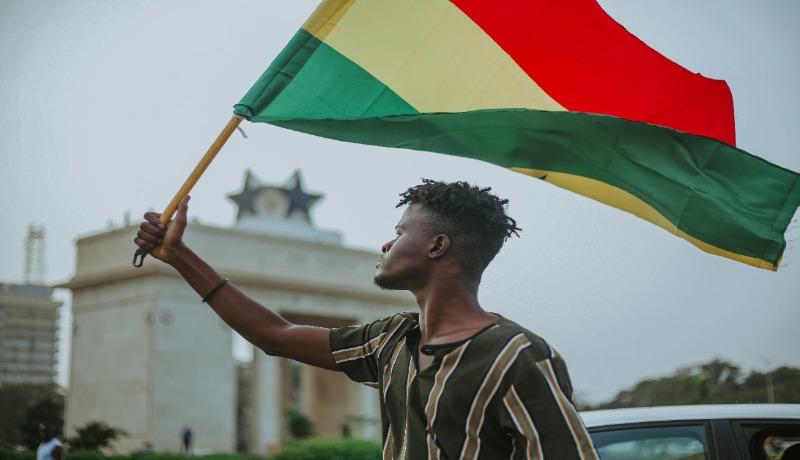

We thank God for a peaceful election, even as we mourn the unfortunate loss of lives and the injuries sustained by others. Elections are a cornerstone of democracy, and while challenges remain, the just-ended 2024 general elections mark another significant stride in our nation’s journey toward democratic maturity. When compared with the 2016 elections, it is evident that Ghana’s democratic framework is evolving, demonstrating resilience and growth.
The Electoral Commission, despite facing its own set of challenges, deserves commendation for its improved organization and execution. While some constituencies remain contested, the overall process reflects enhanced transparency and efficiency. These improvements bolster public confidence in the electoral process and set a higher benchmark for future elections.
A Moment of Respite
For now, we find relief from the cacophony of political slogans, campaign songs, and the endless projections of analysts and fortune-tellers that dominated the pre-election season. The tension-filled atmosphere that sparked debates in homes, offices, and on social media has subsided, allowing the nation to breathe. The end of the election cycle provides a moment for reflection and a collective renewal of purpose.
Amid this, one act of statesmanship stands out: the premature concession of defeat by His Excellency the Vice President, Alhaj Dr. Mahamudu Bawumia. This decision, made before the official announcement by the Electoral Commission, was a selfless act that undoubtedly averted potential unrest. In his speech, Dr. Bawumia declared:
"The people of Ghana have spoken. The people voted for change at this time, and we respect that decision with all humility... I am making this speech before the official announcement by the Electoral Commission to avoid further tensions and preserve the peace of our country."
These words resonate deeply, reflecting a commitment to national unity over personal ambition. His actions not only preserved peace but also exemplified leadership at its finest. His move granted the Electoral Commission the necessary time and space to complete their work without undue pressure, further solidifying public trust in the process.
Reflections on the 8th Parliament
The 8th Parliament of the 4th Republic will be remembered as one of the most dynamic in Ghana’s history. Characterized by a nearly equal number of seats held by the majority and minority caucuses, the Parliament often witnessed intense debates and occasional chaos. These moments, though challenging, were emblematic of the vibrancy of our democracy.
Despite these challenges, the 8th Parliament managed to pass significant legislation aimed at spurring economic growth, enhancing governance, and improving the quality of life for all Ghanaians. The resilience and determination exhibited by members of Parliament offer a lesson in perseverance and the importance of dialogue in achieving progress. Future parliaments can build on these experiences to foster greater collaboration and efficiency.
A Message to the President-Elect
As the President-Elect prepares to take office, this is a pivotal moment to reflect on the solemnity of the Presidential Oath:
"I… having been elected to the high office of President of the Republic of Ghana, do swear… that I will be faithful and true to the Republic of Ghana; that I will at all times preserve, protect, and defend the Constitution… dedicate myself to the service and well-being of the people… and to do right to all manner of persons."
This oath is not merely ceremonial; it is a binding commitment to uphold the values of justice, equity, and service. The President-Elect must lead with integrity, ensuring that the promises made during the campaign are translated into tangible outcomes for all citizens. The people’s mandate demands not only ambition but also wisdom, humility, and steadfast dedication.

Tackling Corruption
One of the most pressing issues is corruption, a challenge that undermines governance and erodes public trust. The President-Elect’s initiative, Operation Recover All Loots (ORAL), along with the outgoing administration’s Office of the Special Prosecutor (OSP), demonstrates a commendable commitment to addressing this issue. However, these efforts must transcend political cycles and become enduring features of governance.
To combat corruption effectively, it is essential to address its systemic roots. This requires a dual approach: punitive measures to deter wrongdoing and positive reinforcements to encourage exemplary behavior. The Holy Qur’an offers profound guidance on this matter in Al-Ahzab: 31-32:
{يَا نِسَاءَ النَّبِيِّ مَنْ يَأْتِ مِنْكُنَّ بِفَاحِشَةٍ مُبَيِّنَةٍ يُضَاعَفْ لَهَا الْعَذَابُ ضِعْفَيْنِ وَكَانَ ذَلِكَ عَلَى اللَّهِ يَسِيرًا}
(الأحزاب 31)
{وَمَنْ يَقْنُتْ مِنْكُنَّ لِلَّهِ وَرَسُولِهِ وَتَعْمَلْ صَالِحًا نُؤْتِهَا أَجْرَهَا مَرَّتَيْنِ وَأَعْتَدْنَا لَهَا رِزْقًا كَرِيمًا }
(الأحزاب 32)
Translation:
"O wives of the Prophet! If any of you is guilty of manifestly dishonorable conduct, the punishment will be doubled for her… But whoever of you is obedient to Allah and His Messenger and does good works, We shall give her her reward twice over."
Leaders must exemplify the values they wish to see in society. Corruption at the top creates a ripple effect, encouraging similar behavior among subordinates. Conversely, integrity and accountability inspire trust and foster a culture of good governance.
The Call for Meritocracy
As the President-Elect assembles his administration, he must prioritize competence, trustworthiness, and dedication. The influx of requests for appointments is inevitable, but appointments should reflect meritocracy rather than favoritism. By selecting individuals based on their qualifications and commitment to national service, the President-Elect can set a powerful precedent for future administrations.
Ghanaians have voted for change, and they will be watching closely to see how this change unfolds. Leadership must be inclusive and transparent, addressing the needs and aspirations of all citizens, regardless of political affiliation.
Building a Brighter Future
The President-Elect’s comfortable parliamentary majority offers a unique opportunity to navigate legislative hurdles and deliver on campaign promises. This mandate is a responsibility to enact policies that drive sustainable development, create jobs, and improve living standards.
The journey ahead will not be without challenges, but with determination and a focus on unity, the nation can overcome obstacles and achieve remarkable progress. Leaders must remember that their actions set the tone for the entire nation. By fostering a culture of accountability, innovation, and service, they can inspire a brighter future for Ghana.
A Charge to All
Leadership is not the sole responsibility of those in power; every citizen has a role to play. Together, we must commit to building a nation defined by integrity, equity, and progress. Let us hold our leaders accountable while supporting them in their efforts to create a just and prosperous Ghana.
May this new chapter in Ghana’s history be marked by peace, unity, and progress. Let us remain steadfast in our prayers for our leaders, asking for wisdom, courage, and humility as they guide our beloved nation forward.
By: Hafiz Usman Mohammed Sekyi (Zonal Missionary, Asikuma-Bedum)









